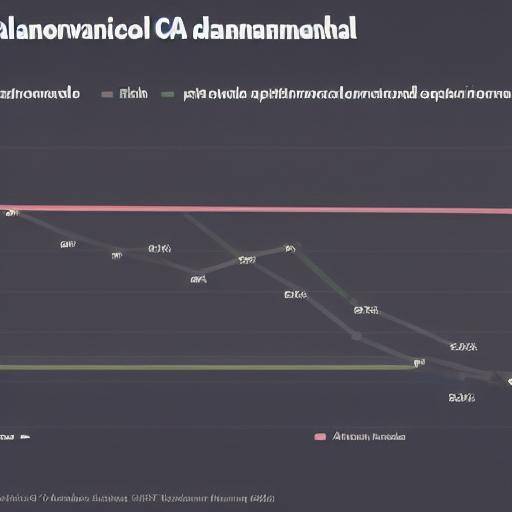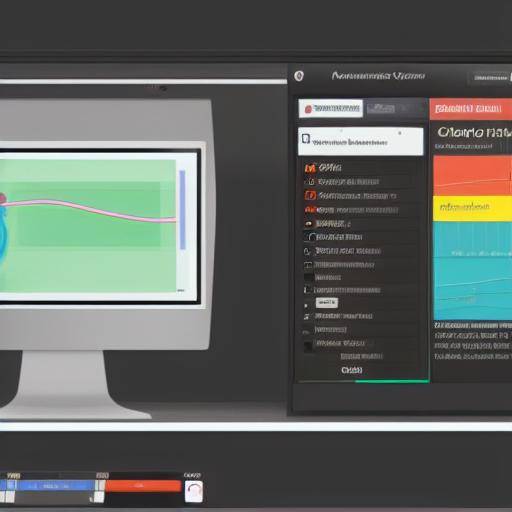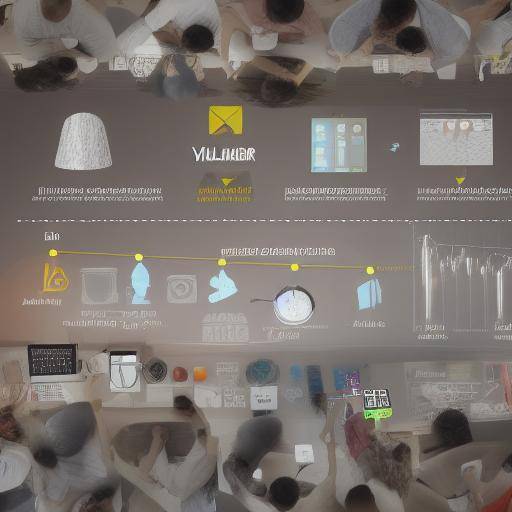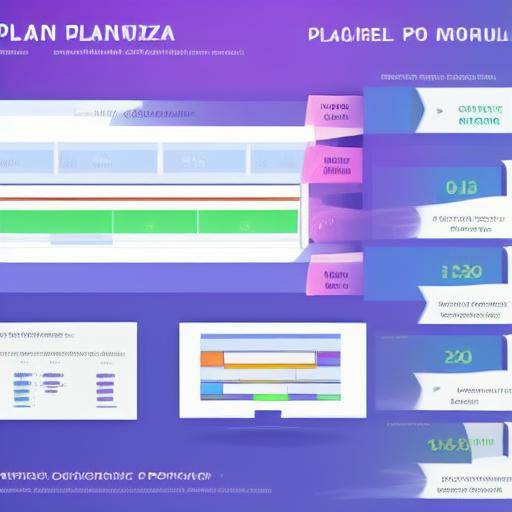
Throughout history, motivation has played a crucial role in achieving goals and personal strategic planning. The ability to maintain a high level of motivation is critical to achieving success in multiple aspects of life. In this article, we will explore in depth the impact of motivation on personal strategic planning, from its origins to future trends. We will also analyze the weight of motivation in achieving personal and professional goals, providing practical advice and expert opinions that will help to understand their importance and application in different contexts.
Introduction: The Power of Motivation
Motivation is the internal impulse that directs our actions towards achieving goals, either in the short or long term. In the area of personal strategic planning, motivation acts as a driving force for people to pursue their dreams, overcome challenges and maintain the necessary approach to achieving success. The connection between motivation and strategic planning is undeniable, as sustained motivation is key to maintaining commitment to the goals set.
History and Background: The evolution of motivation and its impact on strategic planning
Understanding motivation and its influence on strategic planning has deep roots in history. From the classical theories of motivation, proposed by psychologists such as Abraham Maslow and Frederick Herzberg, to modern applications in time management and personal development, the evolution of motivation has been closely linked to the way people approach the strategic planning of their lives.
Daughters in the evolution of motivation
- The theory of the hierarchy of needs of Maslow and its influence on the understanding of motivation as an impulse towards self-realization.
- Herzberg’s model on motivational factors and job satisfaction, which influenced strategic career planning.
- Integrating intrinsic and extrinsic motivation into modern approaches to time management and achieving personal goals.
Detailed analysis of historical cases
- The impact of motivation on the achievements of historical figures such as Nelson Mandela, whose inner strength and motivation led him to pursue equality and justice.
- The personal strategic planning of visionaries such as Steve Jobs, whose motivation for innovation made possible the creation of revolutionary products in the technological field.
Depth Analysis: Current Benefits, Challenges and Trends
Motivation has a significant impact on strategic planning, but it also presents changing challenges and trends that influence its implementation.
Benefits of motivation in personal strategic planning
- Maintaining a high level of motivation helps overcome obstacles and maintain a strong focus on achieving goals.
- Intrinsic motivation drives self-discipline and perseverance, essential elements in personal strategic planning.
- Sustained motivation increases resilience to adversity, improving the ability to adapt to changing circumstances.
Challenges associated with motivation in personal strategic planning
- Lack of motivation may hinder the establishment of realistic goals or the monitoring of a strategic plan.
- The extrinsic motivation can generate dependence on external stimuli, which limits autonomy in personal planning.
Current trends in the relationship between motivation and strategic planning
- The rise in the growth mentality (growth mindset) has highlighted the importance of motivation in personal development and the achievement of goals.
- The growing influence of time management and self-motivation applications and technologies has transformed the way people approach personal strategic planning, providing new tools to maintain long-term motivation.
Comprehensive Review: Applications, Case Studies and Best Practices
Effective use of motivation in personal strategic planning requires detailed case analysis and identification of best practices to ensure optimal results.
Practical applications of motivation in strategic planning
- Establishing specific and attainable goals taking into account intrinsic sources of motivation.
- The design of a phased action plan, which promotes sustained motivation as intermediate milestones are achieved.
- The incorporation of the visualization and constant reminder of the objectives to maintain a constant motivation.
Case Studies and Psychological Examples
- The case of a person who applied motivational techniques to overcome self-discipline and successfully complete a complex personal project.
- An example of overcoming the implementation of motivational strategies that led to the achievement of long-term goals.
Best Practices and Expert Tips
- The expert council on motivational psychology on how to identify and strengthen internal sources of motivation for effective strategic planning.
- Best practices by leaders in the field of time management to maintain high levels of motivation during protracted strategic planning processes.
Comparative Analysis: The Interrelationship between Motivation, Strategic Planning and Targets
Understanding the relationship between motivation focused on strategic planning and achieving personal goals requires detailed comparative analysis.
Similarities and Differences between Concepts
- Motivation, strategic planning and achievement of targets share the need for focus and determination to achieve results.
- The differences lie in the specific application of each concept: motivation drives action, strategic planning structure the way, and achieving goals evaluates the results achieved.
Examples and Scenarios Detailed
- Practical examples that demonstrate how motivation feeds strategic planning, which in turn facilitates the achievement of personal goals.
- Scenarios that illustrate the dynamic interrelationship between motivation, strategic planning and achieving goals in different contexts and situations.
Practical Tips and Accionable Analysis
The effectiveness of motivation in personal strategic planning lies in the ability to translate theoretical concepts into practical and applicable actions.
Practical Tips to Maintain Motivation in Strategic Planning
- Establish intermediate rewards as an additional source of motivation during the planning process.
- Use follow-up and reminder tools to maintain motivation around long-term goals.
Step-by-Step Guides and Detailed Explanations
- Specific steps to identify and establish internal sources of motivation that promote an effective personal strategy.
- Detailed examples of how to structure a strategic plan based on intrinsic motivation for the achievement of long-term goals.
Industrial Perspectives and Expert Reviews
The perspectives of experts and leaders in the field of motivation, strategic planning and achieving goals provide a comprehensive and up-to-date vision on the implementation of these concepts.
Compilation of Expert Perceptions
- Expert opinions recognized in motivational psychology on current trends in the application of motivation in personal strategic planning.
- Interviews with personal and professional thought leaders about the importance of motivation in achieving meaningful goals.
Analysis of Industrial and Prognostic Trends
- Trends in integrating motivation into personal and professional development programmes, and their impact on achieving long-term goals.
- Prognoses on the evolution of motivational practices in strategic planning, considering technological advances and sociocultural changes.
Conclusions and FAQs
Conclusions
In short, motivation plays a key role in personal strategic planning, as it promotes the necessary approach, resilience and self-discipline to achieve significant goals. Understanding motivation and its influence on strategic planning offers opportunities to enhance the achievement of personal and professional goals.
Frequently asked questions
1. What is the importance of motivation in personal strategic planning?
Motivation is crucial in personal strategic planning, as it provides the energy and focus needed to pursue goals consistently and effectively.
2. How can I keep my motivation high over time?
Maintaining long-term motivation requires the identification of internal sources of motivation, the establishment of intermediate milestones and the constant reminder of objectives.
3. What is the difference between motivation and strategic planning in achieving goals?
Motivation drives action, strategic planning structure the way to goals, and achieving goals evaluates the results achieved.
4. What is the role of intrinsic and extrinsic motivation in personal strategic planning?
Intrinsic motivation arises from internal sources of satisfaction, while the extrinsic motivation is linked to external rewards. Both can influence strategic planning differently.
5. How can motivation impact the achievement of long-term goals?
Sustained motivation promotes perseverance, resilience and self-discipline, fundamental attributes for achieving long-term goals.
6. What current trends influence the relationship between motivation and personal strategic planning?
Current trends include the rise in the growth mentality, the integration of time management technologies and the focus on self-motivation in long-term planning processes.
In conclusion, motivation plays a pivotal role in personal strategic planning, influencing the achievement of significant goals. By understanding their foundations, challenges and practical applications, individuals can enhance their ability to achieve and grow personally. The study of trends and expert opinions offers a predictive view of how motivation will continue to impact strategic planning in the modern era.






















































